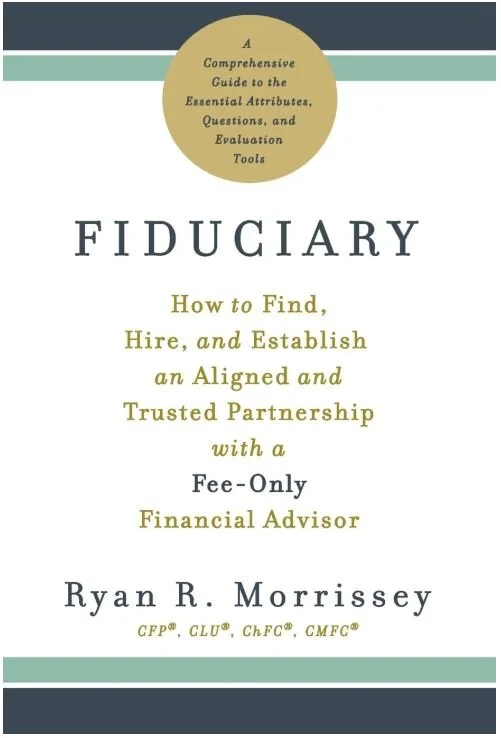What Is an Accredited Investor?
Over the past year, there’s been a growing buzz about alternative investments. If you’ve been hearing about them in TV commercials, social media ads, or even on the radio, you might be wondering: what exactly are alternative investments, and why is everyone talking about them?
Let’s break it down.
What Are Alternative Investments?
In simple terms, an alternative investment is anything that doesn’t fall under traditional investment categories like stocks, mutual funds, bonds, ETFs, and stock options.
These traditional investments are often referred to as "registered investments." To become a registered investment, a company must go through certain legal processes and regulatory requirements, ensuring that investors can access enough information to do their due diligence.
Most of the time, these registered investments are well-known, have a long history, and are relatively easier to evaluate. But when the market doesn’t perform as expected many investors start looking for something different. This is where alternative investments come in.
Why Consider Alternative Investments?
Alternative investments can offer greater diversification and potentially higher returns compared to traditional options. However, they come with additional risks and complexities. These could include:
Private Placements
Real Estate Investments
Venture Capital
Hedge Funds
Angel Investments.
While these opportunities can sometimes lead to high rewards, they also involve much more risk.
The main appeal of alternative investments is that they may help balance a portfolio, especially after a poor year in the traditional markets.
Yet, as appealing as they sound, these investments are often not as easily accessible or transparent as the traditional investments many investors are used to.
The Risks of Alternative Investments
Non-registered investments, like the alternative options mentioned, come with significant risks that registered investments don’t usually have.
For example, your investment could be illiquid, meaning it’s difficult to sell when you need to. They may also be complex, with a high level of uncertainty around how well they’ll perform.
Even worse, some of these investments can go to zero. If you invest in a private placement, for example, there’s a real possibility that your money could disappear entirely. In contrast, traditional investments like stocks or ETFs may lose value, but they’re unlikely to become completely worthless overnight.
This is why the government requires investors to meet certain criteria before they can participate in these higher-risk investments.
Who Are Accredited Investors?
To protect less-experienced investors from the risks of alternative investments, these opportunities are generally only available to accredited investors.
The U.S. Securities and Exchange Commission (SEC) defines an accredited investor under Regulation D, meaning these investors meet specific income, asset, or professional experience requirements.
An accredited investor is someone who:
Has an annual income of over $200,000 (or $300,000 jointly with a spouse) for the last two years, with the expectation of earning the same or more in the current year.
Has a net worth exceeding $1 million, excluding their primary residence. This means that, if you own a home worth $500,000, but have other assets like stocks or real estate that push your total worth beyond $1 million, you could be considered an accredited investor.
Alternatively, if you’re a general partner, executive officer, or director for the company issuing the securities, you may also be considered accredited.
Entities like banks, insurance companies, or private companies with assets over $5 million can also be accredited investors.
It’s important to note that these guidelines don’t just apply to individuals. Certain organizations or professional investors also qualify under specific criteria.
The Purpose of Regulation D
The SEC's role is twofold: to promote investment opportunities while also ensuring that investors are protected from making decisions that might lead to substantial losses. Regulation D was designed to prevent people who aren’t financially sophisticated from making ill-advised investments in risky, unregistered opportunities.
For example, private placements might seem attractive because they often promise higher returns. But the SEC wants to ensure that those buying these securities understand the risks involved and are financially stable enough to absorb potential losses.
Should You Invest in Alternative Investments?
As someone working in this field, I’ve seen a growing number of investors getting excited about alternative investments, often after hearing promises of double-digit returns. However, in my experience, many of these opportunities have fallen short of expectations, and some investors have faced significant losses.
For most people, I typically recommend sticking to more traditional, registered investments that offer transparency and a solid track record. If you’re still tempted to explore alternative investments, it’s crucial to do your homework and understand that these are riskier ventures.
If you meet the qualifications of an accredited investor, you could consider putting a small portion of your portfolio into these alternative opportunities. But remember, this should be treated like gambling.
If you’re okay with potentially losing that money and it won't affect your financial security, then you might consider going for it.
Take my course at your pace through an on demand video library.
Conclusion
Alternative investments can offer intriguing possibilities for higher returns and diversification, but they come with more risk and complexity than the traditional investments you’re likely familiar with. If you qualify as an accredited investor, you may be able to access these opportunities, but be sure to proceed with caution. It’s essential to evaluate whether the potential for higher returns outweighs the risks, and as always, do your research before diving into these less-regulated waters.
If you have a question or topic that you’d like to have considered for a future episode/blog post, you can request it by going to www.retirewithryan.com and clicking on ask a question.
As always, have a great day, a better week, and I look forward to talking with you on the next blog post, podcast, YouTube video, or wherever we have the pleasure of connecting!
Written by Ryan Morrissey
Founder & CEO of Morrissey Wealth Management
Host of the Retire with Ryan Podcast




